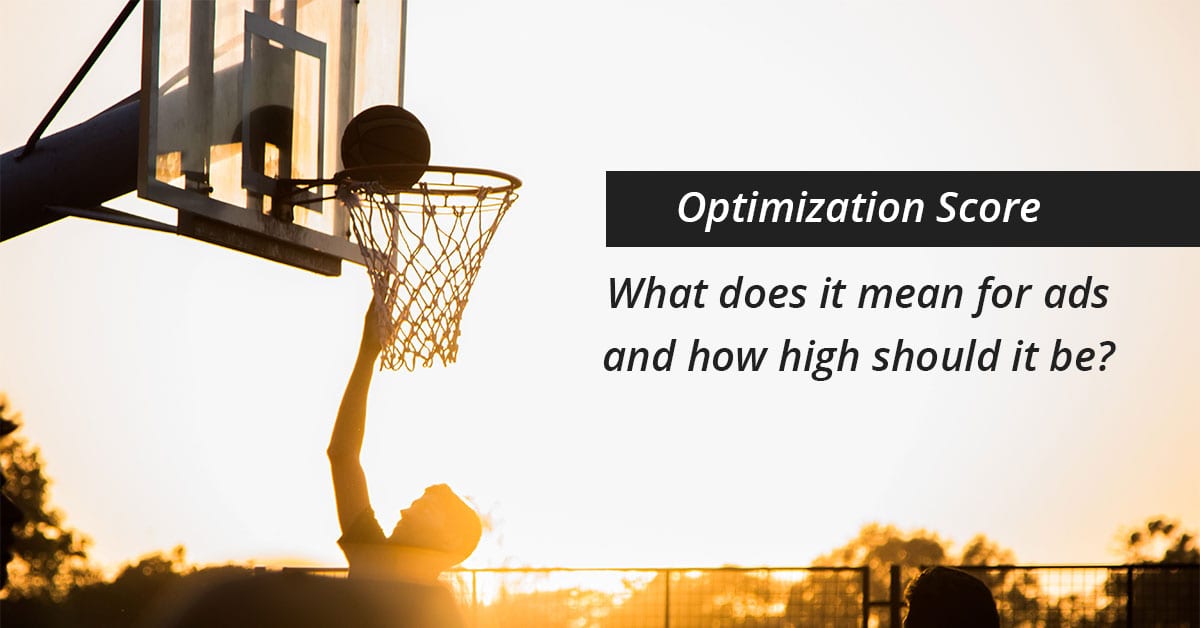With analytics tools, you can observe the performance of your ads, whether they are bringing you new leads and sales, or what is their potential in the future. Optimization score is such an analytical tool directly in Google Ads and it’s available for free.
Analytics tools are important for anyone who chooses to promote their products or services through ads. They help you plan your strategy to get the most out of your ads. However, if you don’t use them consciously, they can do more harm than help. Optimization score as an analytics tool from Google Ads is no exception.
What is an optimization score?
It is an estimated value of how well your Google Ads account is set up for ideal performance. It is available for active campaigns in Search, Shopping and Display network. The value does not affect your Quality Score or Ad Rank.
Optimization score is measured as a percentage on the scale from 1 to 100, depending on how your account fulfills its potential, in real time based on your account statistics, settings, status of your account and campaigns.
Based on optimization score, Google formulates recommendations with suggested settings to improve your account performance. You can find them in your account in the menu on the left side. You can accept or reject recommendations based on your preference.
100% optimization may not be the goal
It is normal that every seller wants to get the best performance of their ad. Well, 100% optimization is not something that should necessarily be your goal.
As mentioned above, the optimization score grows with the application of recommendations formulated by artificial intelligence in real-time based on your ad data. However, it does not take into account your business intentions and the strategy you are following. Therefore, it can happen that some good-looking recommendations will make a hole in your advertising budget.
For example, recommendations can lead you to smart bidding. Process automation is indeed important, but smart bidding can unexpectedly lift your bids and exhaust your budget unnecessarily in a short time. This is because machine learning also needs some time to gather the necessary data to set the optimal bid. You must therefore consider responsibly whether you are prepared for such a change.
Of course, this is not a rule. However, when you receive recommendations, consider carefully whether they are good for you. Can they get you closer to the goal you’re pursuing with your ad? If not, it’s totally okay not to risk and stay on the 80% optimization score.





